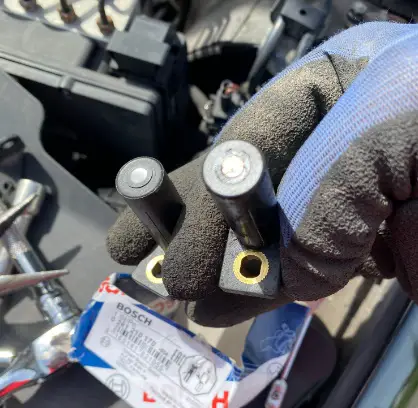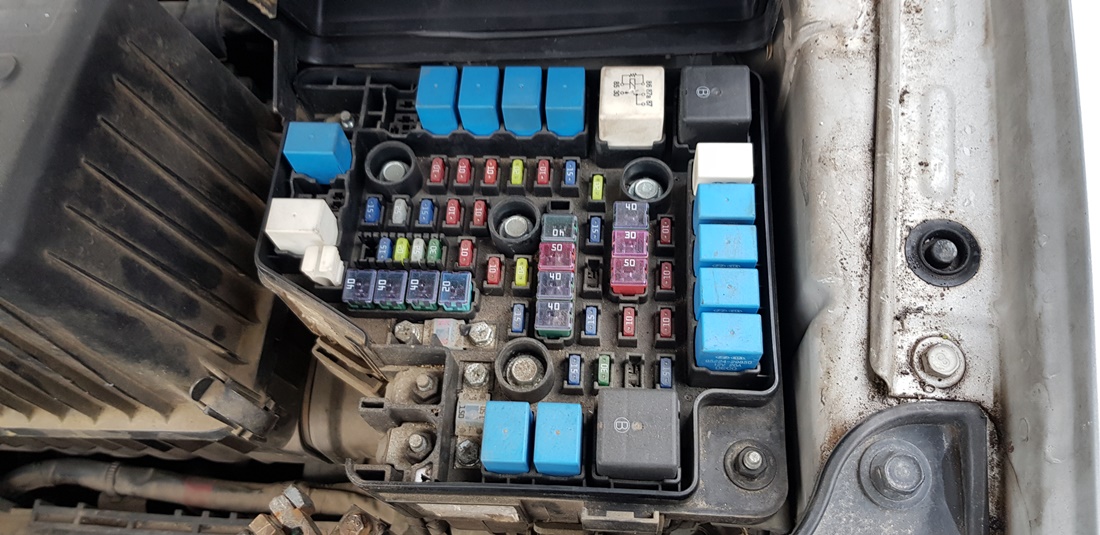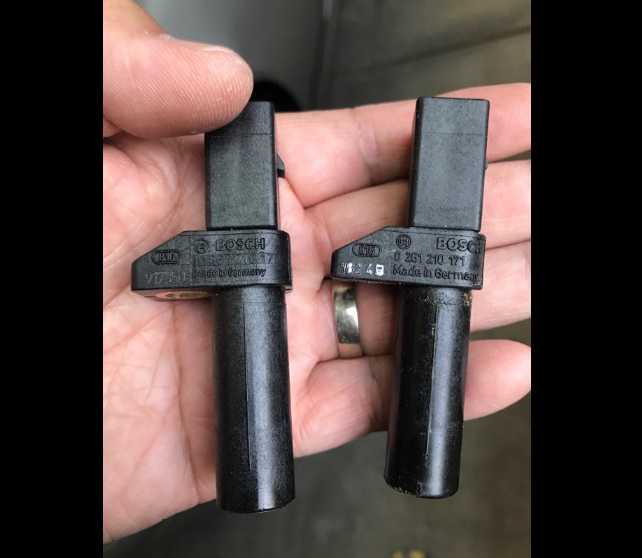If you’re hearing a rattling noise when you turn your car on, it could be an indication of a serious problem.
Rattling noises can be caused by several issues, such as loose parts, worn-out components, or even engine damage.
It’s important to diagnose the issue as soon as possible to avoid further damage and costly repairs.
In this article, we’ll discuss some common causes of rattling noises in cars and how to diagnose them.
- Why Is My Car Making a Rattling Noise When I Turn It On
- Do Cars Rattle More When Started in the Cold
- How Can I Tell Where a Rattling Noise Is Coming From?
- Does the Rattle Stop Once Your Car is Moving?
- Does Your Car Still Rattle When Your Car is Moving?
- FAQs
- Q: Why is my car making a rattling noise when I turn it on?
- Q: What are the 5 reasons for a car to make a rattling noise?
- Q: Can a cold start cause a rattling noise in my car?
- Q: What should I do if I hear a rattling sound when I start my car?
- Q: Could a problem with my brakes be causing the rattling noise in my car?
- Q: Can low engine oil cause a rattling noise in my car?
- Q: What should I do if the rattling noise in my car doesn’t go away?
- Q: Could a problem with my power steering be causing the rattling noise?
- Q: What are some of the common causes of a rattling noise in a car?
- Q: What should I do if I hear a rattling sound while my car is moving?
- In Conclusion
Why Is My Car Making a Rattling Noise When I Turn It On

Your car is making a rattling noise when you turn it on because of a loose or damaged heat shield.
Heat shields are designed to protect various components under the hood from excessive heat generated by the engine and exhaust system.
Over time, these shields can become loose, corroded, or damaged due to vibrations, exposure to the elements, or general wear and tear.
When this happens, they may rattle against other nearby components, creating an unsettling noise as you start your vehicle.
To address this issue, it is essential to inspect the heat shields for signs of damage or looseness and repair or replace them as needed.
This will not only eliminate the rattling noise but also ensure that your vehicle’s critical components remain protected from excess heat.
Do Cars Rattle More When Started in the Cold
It is common for car owners to experience some rattling when starting their vehicles in colder temperatures.
This is because of the chemical composition of engine oil, which becomes thicker in the cold. Thick oil cannot flow as easily, leading to sluggish engine performance and increased noise levels.
Additionally, the battery voltage decreases in colder temperatures, making it harder for the battery to start the engine, which can also contribute to increased rattling.
Another factor that can cause rattling in cold weather is the contraction of metal due to the drop in temperature.
When metal contracts, different parts of a car’s engine can shift and cause a rattling noise. While this may be concerning, it is typically not a sign of a serious problem.
In fact, engines may become quieter once they warm up, as the oil thins and flows more easily.
Regular car maintenance, including oil changes, can help prevent excessive rattling and prolong the life of the engine.
If rattling persists or becomes excessive, it may be necessary to take the car to a mechanic for further inspection.
How Can I Tell Where a Rattling Noise Is Coming From?
If you’re hearing a rattling noise in your car or any other object, it can be challenging to locate the exact source.
However, there are a few ways to determine where the noise is coming from. The first step is to try and identify when the noise occurs.
For instance, if the rattling noise is louder when you’re driving at high speeds, it could be related to your wheels or suspension system. On the other hand, if the rattling occurs when you’re idling, it could be an issue with your engine.
Another way to identify the source of the rattling noise is to check for any obvious loose parts or components. In your car, check for any screws or bolts that may have fallen out or become loose.
If the rattling noise is coming from a large appliance like a refrigerator or air conditioning unit, check the exterior for any damaged parts or loose screws.
Finally, if you’re still unsure of where the noise is coming from, it may be best to take it to a mechanic or professional for an inspection.
They will have the necessary tools and knowledge to identify and fix any issues related to the rattling noise. By following these steps, you can find the source of the rattling noise and prevent any potential safety hazards.
Does the Rattle Stop Once Your Car is Moving?
If the rattling noise occurs when you start your car but stops once it’s moving, it could be due to a loose or damaged component that settles into place as the vehicle gains speed and vibrations change.
Some common causes for this type of rattling include:
- Loose heat shields: As mentioned earlier, heat shields can become loose or damaged over time, causing them to rattle upon startup. The noise may subside as the engine reaches operating temperature and vibrations change.
- Exhaust system issues: Loose or damaged exhaust components, such as hangers, clamps, or brackets, can cause rattling noises at startup that disappear as the vehicle starts moving.
- Engine belts or pulleys: Worn or loose belts and pulleys might produce a rattling noise at startup, which may diminish as the engine reaches its operating speed.
- Engine components: Certain engine components, like the timing chain or valve lifters, can cause rattling sounds, especially during cold starts. As the engine warms up and oil pressure increases, the noise may subside.
It’s essential to consult a professional mechanic to diagnose and resolve any unusual noises in your vehicle.
They can pinpoint the exact cause and recommend the appropriate repairs to ensure your car’s safety and optimal performance.
Does Your Car Still Rattle When Your Car is Moving?
If your car continues to rattle while it is moving, this could indicate a different issue than one that only occurs when the car is started.
Persistent rattling during motion can be caused by various factors, such as worn or damaged suspension components, loose exhaust parts, or even issues with the wheels or tires.
The specific cause will depend on the nature of the noise, its location, and how it changes under different driving conditions.
To accurately diagnose and resolve the issue, it’s essential to consult a professional mechanic who can thoroughly inspect your vehicle and recommend the appropriate repairs.
FAQs
Q: Why is my car making a rattling noise when I turn it on?
A: A rattling sound when you start your car is one of the most common car problems. It could be caused by a number of different things, such as loose parts or worn engine parts.
Q: What are the 5 reasons for a car to make a rattling noise?
A: The five most common causes of a rattling noise in a car are low engine oil, a problem with the exhaust system, worn or broken motor mounts, a problem with the water pump, or a problem with the alternator.
Q: Can a cold start cause a rattling noise in my car?
A: Yes, a cold start can cause a rattling noise in your car. This is because the engine oil is thicker when it is cold, which makes it harder for the oil to lubricate the moving parts of the engine.
Q: What should I do if I hear a rattling sound when I start my car?
A: If you hear a rattling sound when you start your car, you should take it to a mechanic as soon as possible. The noise could be a sign that there is a problem with your engine or transmission. The longer you leave it, the worse the problem could become.
Q: Could a problem with my brakes be causing the rattling noise in my car?
A: Yes, a problem with your brake pads could be causing the rattling noise in your car. If your brake pads are worn out or damaged, they can make a rattling noise when you start your car or when you apply the brakes.
Q: Can low engine oil cause a rattling noise in my car?
A: Yes, low engine oil can cause a rattling noise in your car. When the engine oil level is low, it can’t lubricate the moving parts of the engine properly, which can cause them to create a rattling sound.
Q: What should I do if the rattling noise in my car doesn’t go away?
A: If the rattling noise in your car doesn’t go away, you should take your car to a mechanic to diagnose the problem. Ignoring the noise could cause further damage to your car and result in a more expensive repair bill.
Q: Could a problem with my power steering be causing the rattling noise?
A: Yes, a problem with the power steering system could be the culprit behind the rattling noise in your car. If the power steering pump is failing, it can create a rattling sound that gets louder as you accelerate.
Q: What are some of the common causes of a rattling noise in a car?
A: Some of the common causes of a rattling noise in a car include loose parts, a problem with the exhaust system, a failing water pump, worn or broken motor mounts, or a problem with the alternator.
Q: What should I do if I hear a rattling sound while my car is moving?
A: If you hear a rattling sound while your car is moving, you should take it to a mechanic to diagnose the problem. The noise could be caused by a number of different things, such as loose parts or a problem with the engine or transmission.
In Conclusion
The rattling noise when turning on your car can be attributed to various causes. These range from minor issues like loose components to more serious problems like engine trouble.
It’s crucial to identify the source of the noise and address it promptly to prevent further damage or potential safety hazards.
Consulting a professional mechanic is recommended to ensure proper diagnosis and repair, ensuring your vehicle’s optimal performance and longevity.




